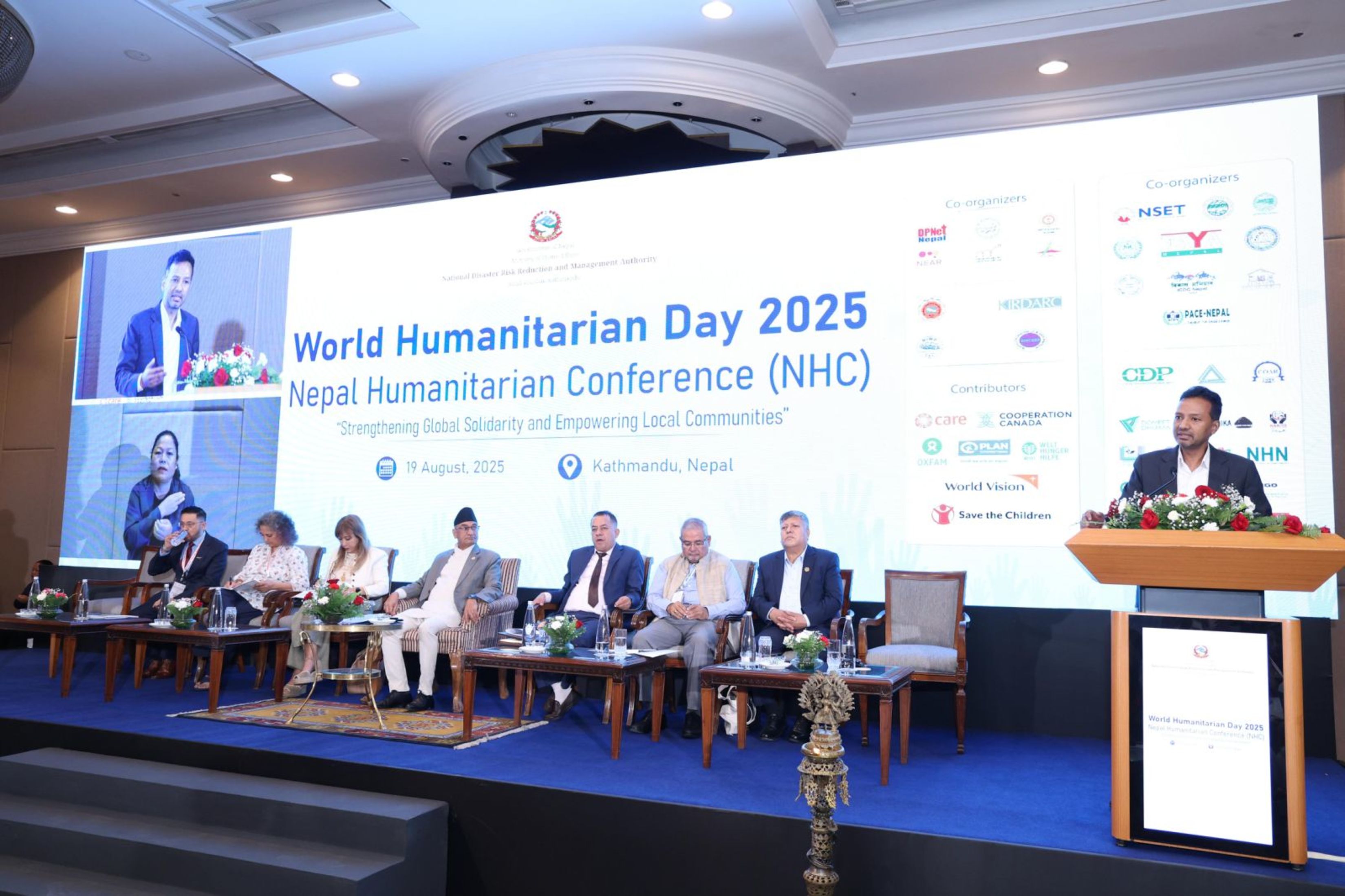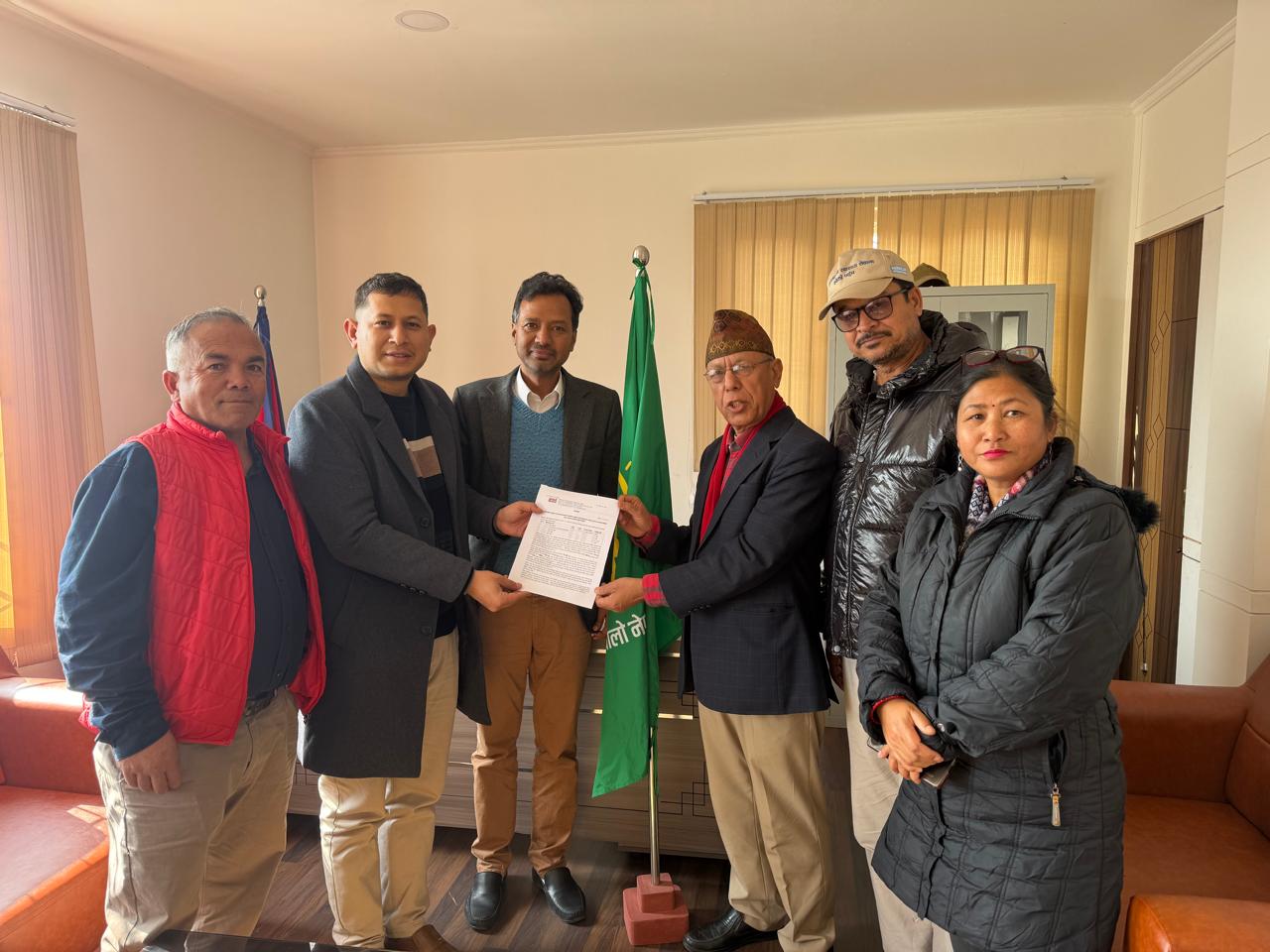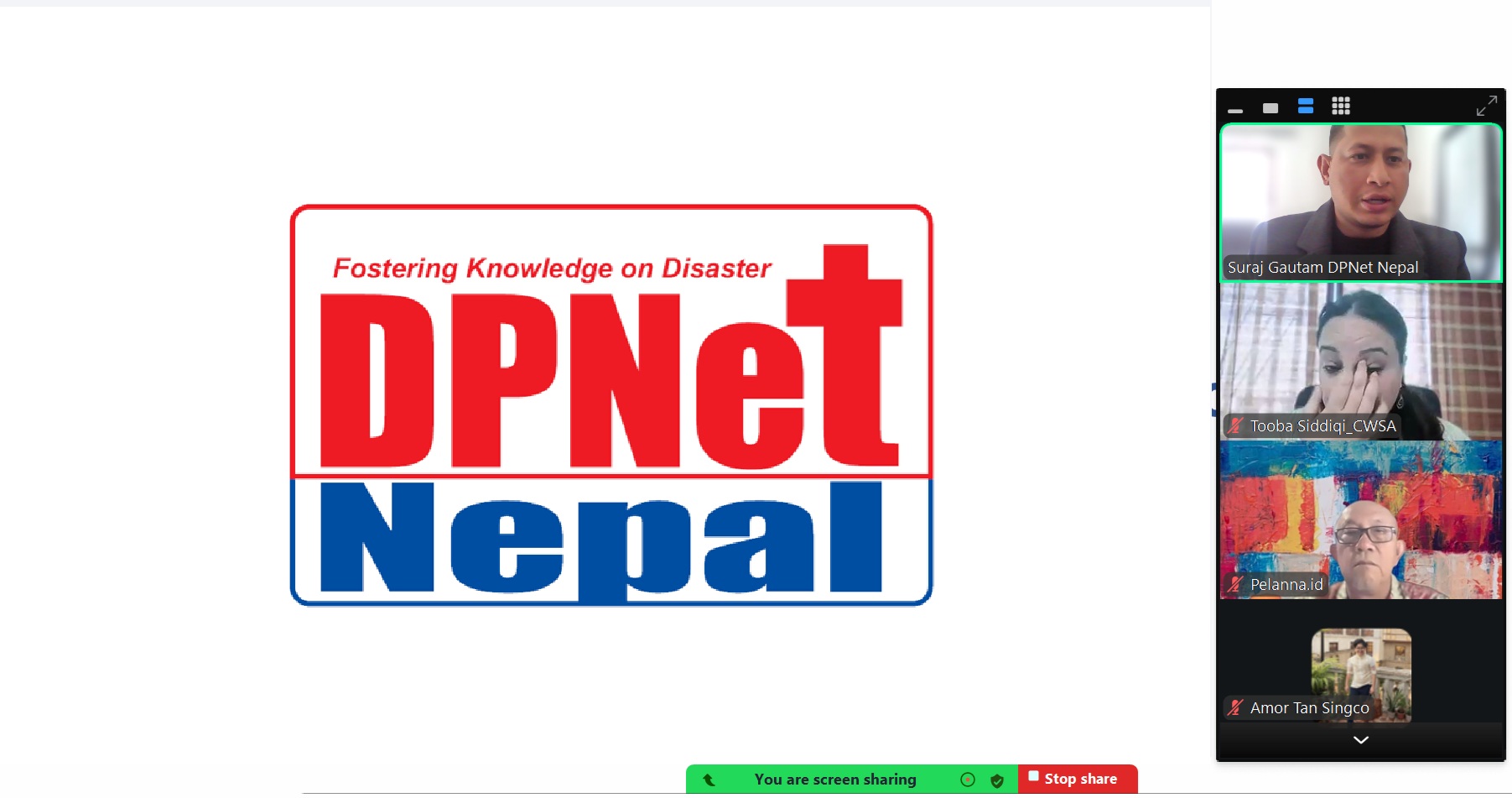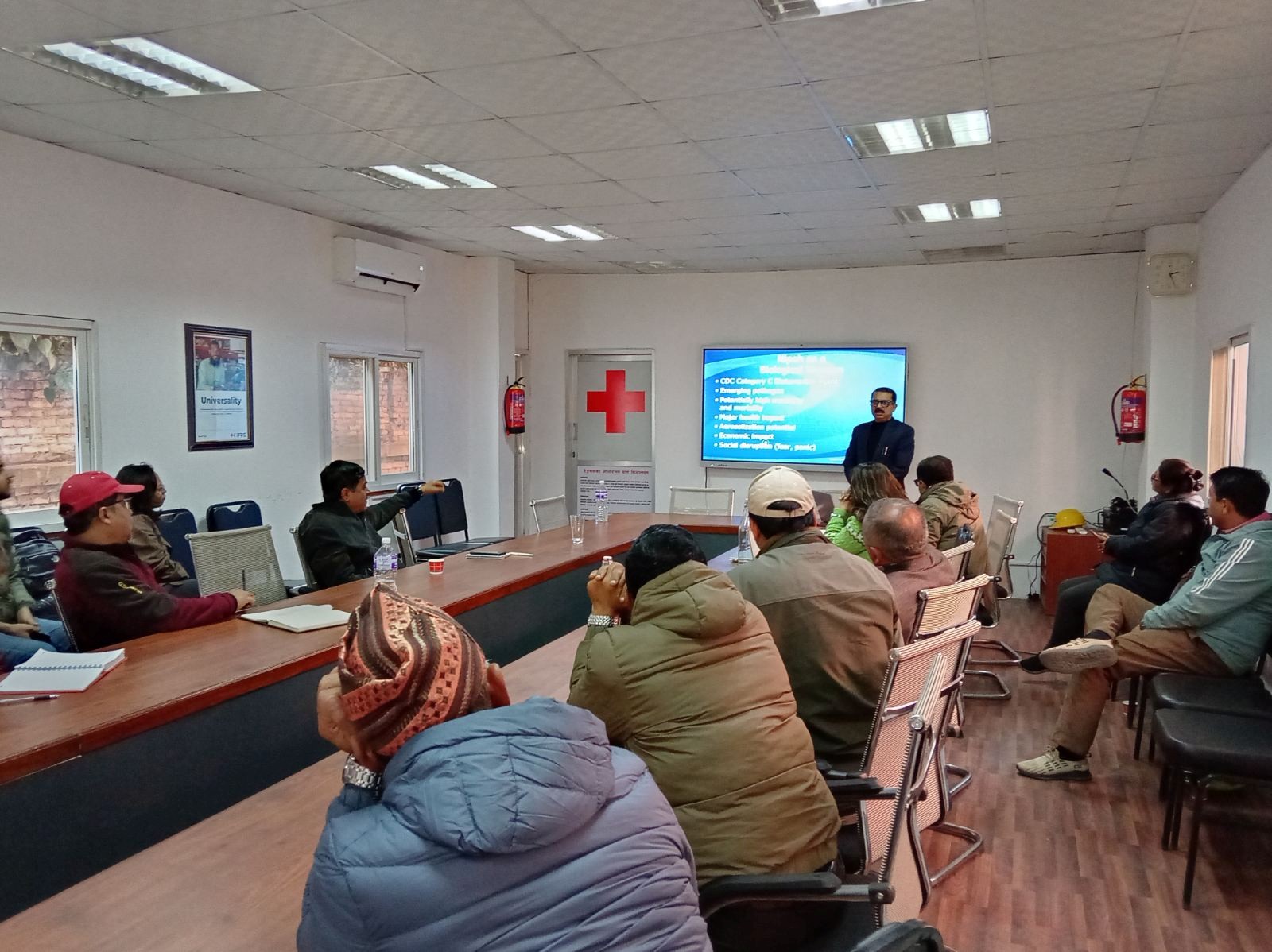Nepal marks World Humanitarian Day with call for locally led response and Good Samaritan protections

Kathmandu, Aug 19, 2025, The National Disaster Risk Reduction and Management Authority organized a national program in Kathmandu to mark World Humanitarian Day. The event was supported by organizations including DPNet, NSET, NEAR Network, and brought together UN agencies, national and international NGOs, and professional networks. The program focused on promoting humanitarian support and strong local leadership within an international framework capable of supporting communities during crises.
Home Minister Ramesh Lekhak inaugurated the conference as Chief Guest and urged stronger regional cooperation, experience sharing, and practical solutions that put local authorities and first responders in the lead. His remarks highlighted Nepal’s repeated exposure to floods, landslides, earthquakes, and fires, and the need to keep building capability at the ward and municipal level. The event took place under the banner “Strengthening Global Solidarity and Empowering Local Communities.”
That message mirrored wider humanitarian communications this year. Global agencies marking World Humanitarian Day emphasized protection for aid workers and meaningful support to community responders. United Nations materials describe the day as a time to honor those who step into crises, while many agencies warned that fatalities among aid workers remain alarmingly high in 2025.
The Kathmandu program also showcased the Asia Pacific localization movement that NEAR and partners convened this week. Participants advanced commitments captured in the Kathmandu Covenant, aiming to shift more power, resources, and decision making closer to frontline actors across the region.
In one of the day’s most concrete policy appeals, DPNet Chairperson Dr. Raju Thapa called for a Good Samaritan law in Nepal. Such a law would protect bystanders, community responders, and humanitarian workers who render emergency aid at accident sites or during disasters, shielding them from legal harassment or prolonged police inquiry. Civil society advocates have argued that clear legal immunity and simplified hospital intake rules would remove a major barrier to life saving help in the first minutes after an incident. In response, the Home Minister welcomed the proposal, and NDRRMA’s leadership said the Authority will introduce a reward policy to recognize and honor individuals who risk their lives to rescue others.
Speakers repeatedly underlined that most rescues in Nepal are carried out by local actors long before national assets arrive. That reality, they said, is why policy and budgets should keep prioritizing local preparedness, volunteer training, bilingual public messaging, and interoperable communications. It also aligns with this year’s World Humanitarian Day theme, which centers the pairing of global solidarity with empowered communities.
World Humanitarian Day is commemorated every year on 19 August to honor aid workers and advocate for the protection of civilians affected by crises. The observance originated in memory of the 2003 Canal Hotel bombing in Baghdad. In 2025, UN agencies and humanitarian networks again urged authorities and armed actors to respect international humanitarian law, and they called on donors to address widening funding gaps that leave local responders to shoulder growing risks with fewer resources. As Kathmandu closed its program, participants said they would carry forward issue discussed during the sessions, including legal reforms to enable safe bystander assistance and continued investment in municipal readiness.











